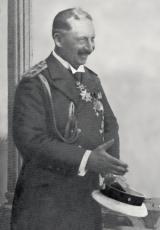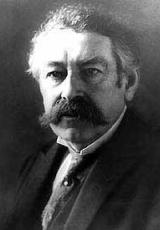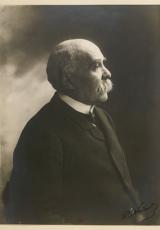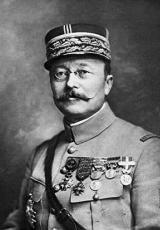Raymond Poincaré
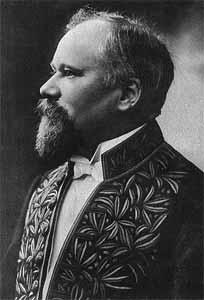
Raymond, Nicolas, Landry Poincaré, was born into an old family from the Lorraine on the 20th August 1860 in Bar-le-Duc. Following his secondary education in Bar-le-Duc and then in Paris, with a degree in law as well as in the arts, he was enrolled as a lawyer at the Paris bar in 1880. He received his doctorate in law and became a legal columnist at the Voltaire, a radical daily newspaper edited by Jules Laffitte. In 1886, at the age of 26, he made his debut in politics as the head of the cabinet of Jules Develle, the Minister of Agriculture. He was elected General Councillor of the Meuse and then, the following year, MP for the same département. Specialising in financial matters, he was the reporting officer of the 1890 budget and in 1893 accepted the portfolio for Public Instruction and the Arts in Prime Minister Dupuy's cabinet. In 1894, he became Minister of Finance before taking on the portfolio for Public Instruction and the Arts again for a short period, along with running the Department of Religion in Ribot's cabinet in 1895. After the fall of the latter, he declined Jules Méline's offer of Finance Minister in the new government. Whilst establishing a rapidly well-known legal practice, he continued to carry out his parliamentary duties and became vice president of the Chamber.
He was Senator of the Meuse from 1903 to 1913 and in 1906 he accepted the portfolio for Finance in Sarrien's cabinet. He was elected to the French Academy in 1909. In January 1912, as President of the Council and Minister of Foreign Affairs following the Agadir Affair, which set Germany and France against Morocco, he was in favour of restoring executive power against the Assembly and of a liberal yet strong state and set out to solve the problems of overseas policy. On the 30th March he signed the treaty of the protectorate with the Sultan of Morocco. In addition, he sought to strengthen the bonds between France and Great Britain and Russia. To this end, an agreement to provide naval assistance was negotiated with Great Britain and in August he went to Russia to revive the alliance. A "Secular Republican" and man of order, he was elected President of the Republic on the 17th January 1913. Faced with the prospect of war, he got the three year military service law voted through in August and, on the overseas front, strengthened alliances by making a second trip to Russia in July 1914. Once war was declared his vital task was to win the conflict. For that he had to muster up all his forces and unite all the faithful, both from the left and the right, in a word, make the "Sacred Union ". The government would be headed in turn by Viviani, Briand, Ribot and Painlevé, but before weapons could prove successful. Military and political problems multiplied: defeat for the French on the Chemin des Dames, mutinies on the front, the reawakening of social tensions and the end of the Sacred Union. Keeping his personal feelings to himself, Poincaré called upon his political enemy, Clemenceau, who became President of the Council on the 16th November 1917. In 1918 came the victory and the return of the Alsace-Lorraine to France.
At the end of his 7-year term of office he again became Senator of the Meuse and was Chairman of the Reparations Committee between February and May 1920, before being appointed Council President and Minister of Foreign Affairs in 1922. He was in favour of the integral execution of the Treaty of Versailles and, despite Allied reticence, he sent General Degoutte's troops to occupy the Ruhr on the 11th January 1923, as the Germans were late with their reparations payment. The result of the legislative elections, giving a majority to the "Cartel of the left", forced him to hand in his resignation in June 1924. He was recalled on the 23rd July 1926 to try to right a catastrophic financial situation, immediately restoring confidence and managing to stabilise the Franc. Absorbed by monetary problems, he left the domain of foreign affairs to Briand who chose a different policy, that of seeking a compromise with Germany. Due to illness, Poincaré resigned in July 1929 and concentrated on writing his Memoirs, Au service de la France (Serving France) (1926-1933). He died on the 15th October 1934. Following a state funeral held in Paris, he was buried in Nubécourt.
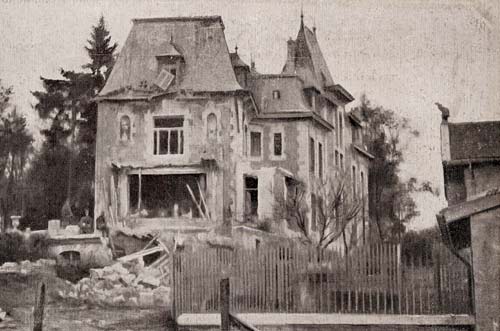
Sampigny - Maison de Raymond Poincaré bombardée. Source : SHD


